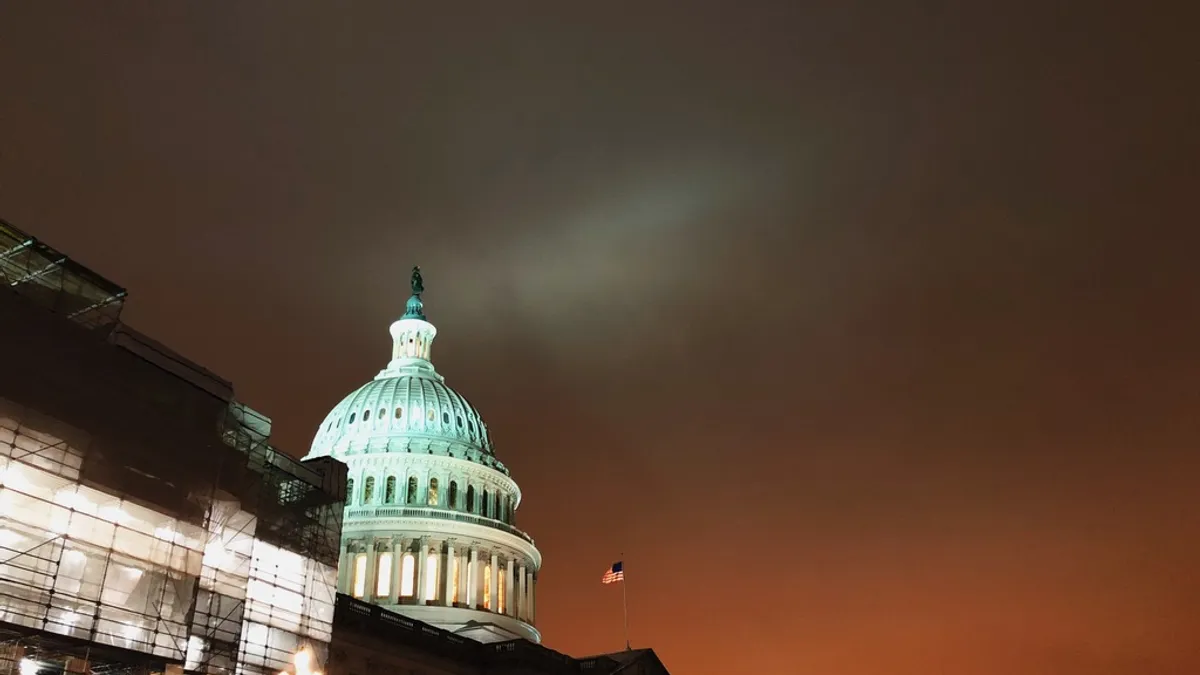Dive Brief:
- Treasury Secretary Janet Yellen told a Senate committee that failure by lawmakers to raise the U.S. debt ceiling would “be a self-inflicted wound of enormous proportions,” plunging the U.S. into recession, undermining confidence in the dollar and pushing up borrowing costs for years.
- “This would be a manufactured crisis we have imposed on this country,” Yellen said Tuesday in testimony to the Senate Banking Committee. “I can’t think of anything more harmful to the role of the dollar than failing to raise the debt ceiling.”
- The Treasury, unable to borrow since Aug. 1, will likely run out of available cash to pay U.S. bills by Oct. 18, Yellen said in a letter warning congressional leaders of both parties about the costs from even just delaying an increase in the debt ceiling. “We know from previous debt limit impasses that waiting until the last minute can cause serious harm to business and consumer confidence, raise borrowing costs for taxpayers and negatively impact the credit rating of the United States for years to come.”
Dive Insight:
Senate Republicans on both Monday and Tuesday blocked efforts by Democrats to increase the U.S. debt ceiling, saying an increase would enable still more excessive spending by the Democratic-controlled Congress.
Democrats pushed through $1.9 trillion in pandemic relief in a partisan vote early this year and are proposing to spend $3.5 trillion on child care, education, healthcare and efforts to combat climate change. They say Republicans have an obligation to vote for raising the debt limit, noting that the national debt rose by nearly $8 trillion when Republicans controlled Congress during the Trump administration.
Borrowing costs have increased during the debt ceiling deadlock. The yield on the benchmark 10-year Treasury note rose to 1.54% Tuesday afternoon, the highest level in three months.
A similar impasse in 2011 increased federal borrowing costs that fiscal year by $1.3 billion, the U.S. General Accountability Office said in a 2012 study. “This does not account for multi-year effects on increased costs for Treasury securities that will remain outstanding after fiscal year 2011.”
“If it looks, as in 2011, like Congress might not raise the debt ceiling and we might not be able to pay our bills, then you would expect to see interest rates spike,” Yellen told the Senate panel. “And if the debt ceiling were not raised, I think there would be a financial crisis and a calamity.”
Outright default would wipe out $15 trillion in wealth, push up jobless rolls by 6 million, paralyze short-term funding markets and push up interest rates for corporate borrowing, mortgages and consumer loans, according to Moody’s Analytics.
Republicans on the Senate committee told Democrats they should not expect their help to expand the Treasury’s borrowing authority.
“It’s a fact, isn’t it, that you and your folks just want Republican fingerprints on the Democrats’ effort to tax, spend and regulate America into Europe,” Senator John Kennedy (R-La.) said to Yellen. “This is all about the administration’s desire to have Republican fingerprints on it, and later call it bipartisan."
Budget battles between the Obama administration and the Republican-controlled Congress in 2011 and 2013 provoked an uncertainty that inhibited business investment and hiring and slowed economic growth, according to Moody’s Analytics.
Without the partisan wrangling, by mid-2015 gross domestic product would have been 1% higher and unemployment would have been 0.7 percentage point lower, with 1.2 million more workers employed, Moody’s Analytics said.















